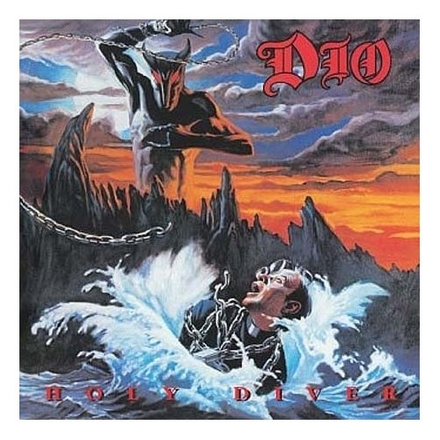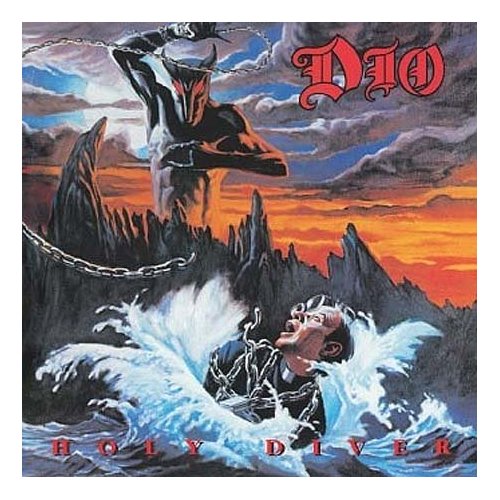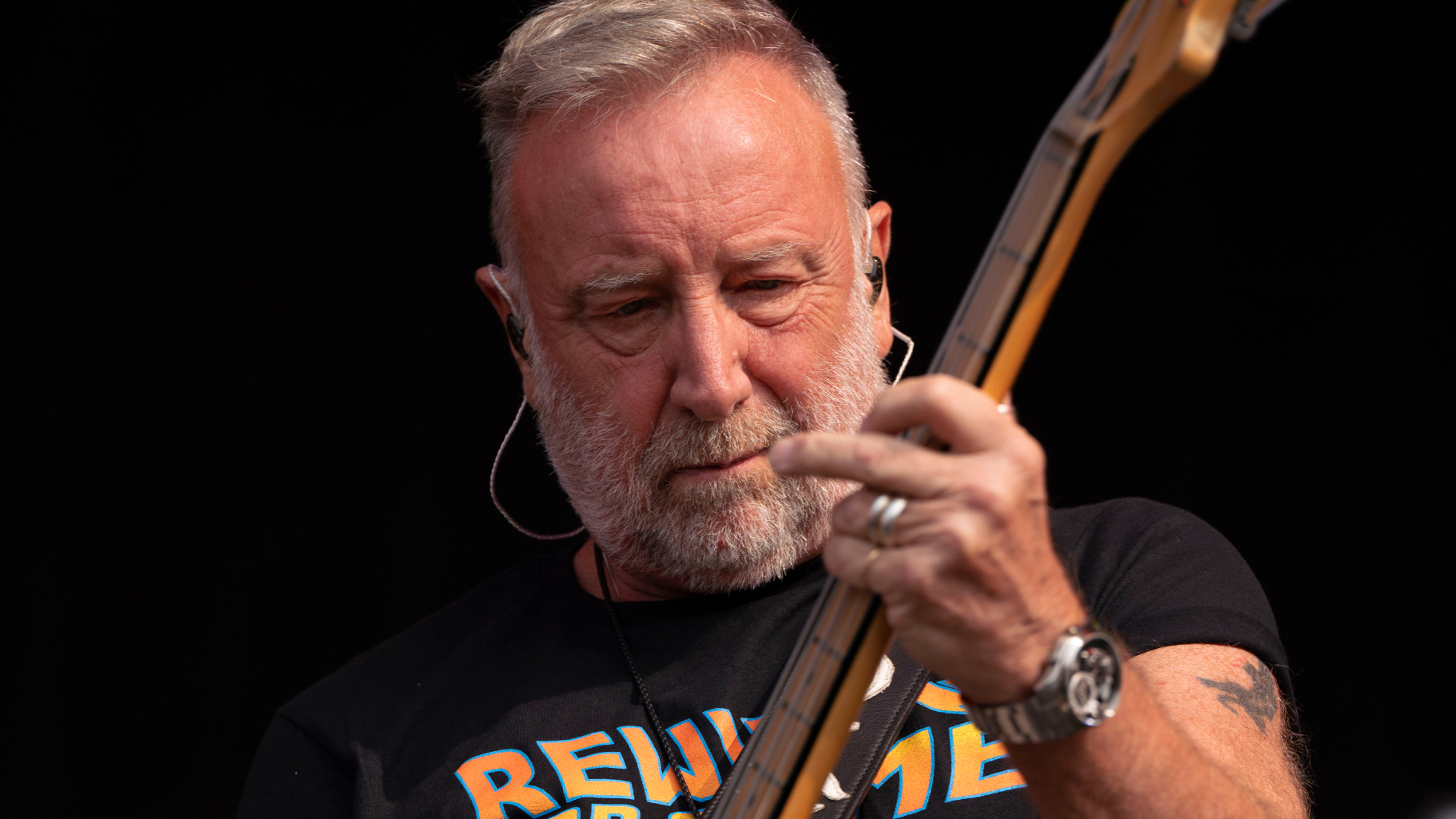

Artist: Dio
Album: Holy Diver
Released: 1983
Guitarist and gear: Vivian Campbell, Les Paul Deluxe
Like many of you, we were disappointed to hear that Heaven And Hell - the supergroup featuring Tony Iommi, Geezer Butler, Vinny Appice and Ronnie James Dio - have had to cancel their European shows due to the singer's illness.
Of course we wish Dio all the best in his recovery, but until he's back tearing it up onstage, we'll have to make do with putting his masterwork on the office jukebox again…
When vocal powerhouse Dio formed his own band following successful runs with both Rainbow and Black Sabbath, few would have expected lightning to strike so strongly a third time. But it did - Holy Diver stands as one of the greatest metal albums ever recorded, with its nine titanic wedges of melodic metal that owe a huge debt to Vivian Campbell's inspirational guitar playing.
Get the MusicRadar Newsletter
Want all the hottest music and gear news, reviews, deals, features and more, direct to your inbox? Sign up here.
He was a relative unknown in Belfast's Sweet Savage when he was handpicked by Dio after Jake E Lee's departure from the fledgling band.
A canny choice indeed, the 19-year-old Irishman's impressive pallet of techniques and raw passion for his playing shines through from the full-on opener Stand Up And Shout, the riffmonster title track, the upbeat melodicism of Gypsy and Caught In The Middle (both of which the guitarist has co-writing credits on) to the flawless moody dynamics of Don't Talk To Strangers.
It's debatable whether Campbell - now with Def Leppard - or even Dio himself - ever soared to such creative heights again.
Campbell told Guitarist his own feelings upon revisiting the album himself: "I never appreciated what I did as a guitar player - I realised that actually it was alright. At the time I thought it was shite. I just wanted to play faster and faster. Apparently it's been influential but I didn't appreciated that until a couple of years ago. There was a lot of anger in my playing, and for good reason."
And he also told us how he came to own his iconic cherished, "bastardised" Les Paul, which he used to record the album:
"It wasn't like today where you go to a guitar centre and they've got 3,000 to choose from - I had to wait for months and months [to see a Les Paul]. I'd go in every day and ask, Any sign yet?
"One day I went in and they said, Good news and bad news - we have a Les Paul Standard but it's not gold. I was impatient so I said I'd take it - it was a wine red deluxe Les Paul with the little mini 'buckers in it. I thought that was pretty cool because Scott Gorham had a sunburst version as one of his main guitars. So I took that and immediately set about bastardising it.
"The first thing I did was take emery paper and rub the finish down because Rory [Gallagher] was my guy back in the day, I don't like the newness. To this day I still tell Wolfie, my tech, Don't clean it up if I bang into it with my belt buckle, that's fine.
"I changed everything on that guitar - I changed the mini humbuckers out and put a DiMarzio in the bridge, I refretted it, painted it matte black after a couple of years and put Schaller machine heads and a brass nut on it.
"That was the guitar I went on to use with Dio on the Holy Diver record. I still have that guitar and it's the only guitar I know the serial number of: 72987537.
"It's not a great guitar compared to the Les Pauls I have nowadays - the neck's really thin, I play much thicker necks now. But a lot of notes have been played on that guitar - a lot of solos. I always remember the Holy Diver album and tour was on that guitar - and most of Last In Line too."
Check out this rocking Dio performance on Rock Palace from 1983 to find out how to invade a stage and backflip while sporting an extremely sensible haircut…
Guitarist is the longest established UK guitar magazine, offering gear reviews, artist interviews, techniques lessons and loads more, in print, on tablet and on smartphones Digital: http://bit.ly/GuitaristiOS If you love guitars, you'll love Guitarist. Find us in print, on Newsstand for iPad, iPhone and other digital readers
"At first the tension was unbelievable. Johnny was really cold, Dee Dee was OK but Joey was a sweetheart": The story of the Ramones' recording of Baby I Love You
"Reggae is more freeform than the blues. But more important, reggae is for everyone": Bob Marley and the Wailers' Catch a Fire, track-by-track





![PRS Archon Classic and Mark Tremonti MT 15 v2: the newly redesigned tube amps offer a host of new features and tones, with the Alter Bridge guitarist's new lunchbox head [right] featuring the Overdrive channel from his MT 100 head, and there's a half-power switch, too.](https://cdn.mos.cms.futurecdn.net/FD37q5pRLCQDhCpT8y94Zi.jpg)






